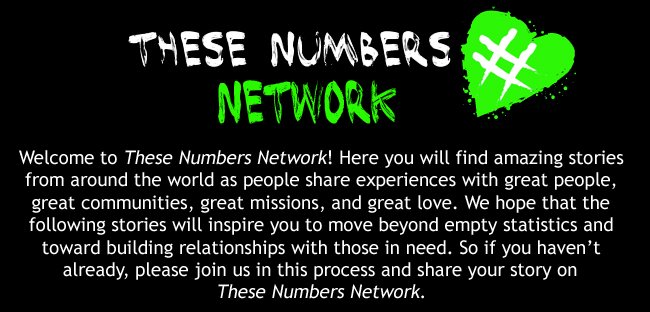Location: India
Contact: trent.tyni@gmail.com
 Over two months ago we arrived in India unaware of the experiences that awaited us. Delhi humidity, persistent rickshaw drivers, and a forty-four hour tnging. Even in Delhi, India’s leading city, lepers lined the streets while barefoot beggars constantly badgered us. We quickly discovered that efforts to combat this problem restednot wit rain ride tested our patience. However, the magnitude of India’s poverty proved most challeh the government but lied in the hands of local churches, grassroots ministries, and growing non-profits. Working alongside these organizations forced us to evaluate our understanding of “development” – a buzzword commonly associated with the redemption of our world.
Over two months ago we arrived in India unaware of the experiences that awaited us. Delhi humidity, persistent rickshaw drivers, and a forty-four hour tnging. Even in Delhi, India’s leading city, lepers lined the streets while barefoot beggars constantly badgered us. We quickly discovered that efforts to combat this problem restednot wit rain ride tested our patience. However, the magnitude of India’s poverty proved most challeh the government but lied in the hands of local churches, grassroots ministries, and growing non-profits. Working alongside these organizations forced us to evaluate our understanding of “development” – a buzzword commonly associated with the redemption of our world.We spent the first ten days of our trip in Bangalore, India partnering with Yuvalok, an extension of Young Life in southern India. Our time here was spent teaching, painting two bedrooms, constructing a fence, and playing with the children. Through education, Yuvalok was able to provide for children formerly in labor situations with clothing and meals. By affording necessary subsistence, these children were freed from having to fend for themselves. In addition, education equipped youth with tools necessary to succeed in their desperate world. Reading, writing, mathematics, English, and the ability to think critically offered opportunities otherwise unavailable to these children. At Yuvalok we saw education as development - liberating and empowering the poor of India.

On the outskirts of Delhi we encountered the Sewa Ashram, a service community of society’s outcasts. Though almost all of the ministries we visited targeted India’s poor, this was the only ministry whose volunteers lived, ate, and slept among them. Here transvestites, orphans, handicaps, addicts, and the half dead found restoration through community. Suresh, a former drug addict rehabilitated by the Ashram, chose to care for the terminally ill patients of T.B. Hospital in Delhi. Slowing dying, unattended by corrupt staff and in endless pain, these were the lives he fed, bathed, and clothed. Suresh lived love in its most raw form: complete self-sacrifice. We struggle to find time to “volunteer” or “serve others” one day a week - Suresh can’t find time for anything else. This extreme devotion to Jesus’ commands proved unsettling. Although this ministry made us most uncomfortable, the fruits of it were undeniable. This was not a place where the destitute came to die but where the dying found life. Our time spent visiting the TB hospital, teaching, and simply being with these people destroyed our conventional notions of ministry that tend to distort Jesus’ words for the sake of security and comfort. At the sewa ashram we experienced development through a broken community. This is where Jesus would have walked - this is His Kingdom.
We found ourselves spending the last two weeks of our trip in beautiful Northern India. Nestled in between the Himalayas and the valley, Dehradun and Mussoorie played host to pristine weather, lush vegetation, rising mountains, and sporadic thunderstorms. Here remote rural villages lacking electricity, clean water, and proper sanitation checkered the mountainous landscape. EHA, a network of Christian hospitals throughout northern India, sought to meet both the physical and spiritual needs of these communities. Through various health development strategies (water, sanitation, education, and micro-enterprise), EHA revitalized village communities. Specifically in Herbertpoor, EHA helped village women initiate self-help groups. These groups not only promoted financial growth but also provided a forum for discussion in a community considered safe and secure. By working directly with village communities, training indigenous leaders, and providing quality health care, EHA embodied holistic ministry that satisfied both physical and spiritual development. By painting hospital rooms, organizing patient records, and visiting villages we encouraged EHA patients and staff. In terms of holistic development, EHA proved to be a revolutionary model for personal and social change.
These three ministries provide just a glimpse into what the Church is doing in India. Interestingly enough, it is these revolutionary models of ministry that are effecting real social change. Although each ministry blended good news with good works, we found that it is ultimately a change in mindset that produces real development. By preaching enlightened ideals of equality and freedom, the Gospel is able to liberate Hindus from the caste system and open the door to social mobility and progress. In fact, it is this change in worldview that we ourselves experienced on this trip. Through our journey together we no longer see the world as we did three months ago. Together we have been frustrated, we have asked difficult questions, and we have struggled with reality. These experiences have and will continue to shape the way we view our world and our role within it.







 While there, we traveled all over the country-- from the southern lands bordering Laos and Cambodia, to the deep interior, Hong Kong, Beijing, Shanghai, Xi'an. In each of these places we met suffering, persecuted Christians who told stories that you might read about on Christian watch sites or CNN.com. In Hunan, we experienced the persecution first hand when we had to flee from a house church meeting when police arrived. As much as you can hear about persecution happening worldwide, you don't understand what it really feels like until you actually find yourself running, praying, panicking and watching your life flash before your eyes in a Chinese prison. Maybe it's the same reason why people don't care about the AIDS crisis, Darfur or human slavery-
While there, we traveled all over the country-- from the southern lands bordering Laos and Cambodia, to the deep interior, Hong Kong, Beijing, Shanghai, Xi'an. In each of these places we met suffering, persecuted Christians who told stories that you might read about on Christian watch sites or CNN.com. In Hunan, we experienced the persecution first hand when we had to flee from a house church meeting when police arrived. As much as you can hear about persecution happening worldwide, you don't understand what it really feels like until you actually find yourself running, praying, panicking and watching your life flash before your eyes in a Chinese prison. Maybe it's the same reason why people don't care about the AIDS crisis, Darfur or human slavery- 

 om the Babylonian exile. He lived about 450 BC and helped to rebuild his country with practical work as well as through spiritual and social reforms. In 1991, the first relief trucks arrived in Albania. Their work and community development aid covers many needs: education, welfare, church planting, medical work, and other projects. Thus, our roles and tasks during these four days were very diversified. When we arrived in Tirana, the capital of Albania, we were right in the middle of a city which is developing into a more or less modern society. Modern and advanced meets old and dirty. Most of the roads were okay to drive one, except maybe for the fact that I as a Westerner missed the actual lines on the road that determined the lanes. Since George W. Bush had just been there a few days prior to our arrival we could still see the effort that had been put into giving him, and all Americans, the warmest welcome possible. Everywhere were posters and flags, and one big building, which was probably something like the city hall, had a huge George W. Bush portrait on it - what a view. We continued our journey to Pogradec which took us about four hours. We had to travel by car because Tirana is the only place in the whole country with a "big" airport.
om the Babylonian exile. He lived about 450 BC and helped to rebuild his country with practical work as well as through spiritual and social reforms. In 1991, the first relief trucks arrived in Albania. Their work and community development aid covers many needs: education, welfare, church planting, medical work, and other projects. Thus, our roles and tasks during these four days were very diversified. When we arrived in Tirana, the capital of Albania, we were right in the middle of a city which is developing into a more or less modern society. Modern and advanced meets old and dirty. Most of the roads were okay to drive one, except maybe for the fact that I as a Westerner missed the actual lines on the road that determined the lanes. Since George W. Bush had just been there a few days prior to our arrival we could still see the effort that had been put into giving him, and all Americans, the warmest welcome possible. Everywhere were posters and flags, and one big building, which was probably something like the city hall, had a huge George W. Bush portrait on it - what a view. We continued our journey to Pogradec which took us about four hours. We had to travel by car because Tirana is the only place in the whole country with a "big" airport.












 I apologise for my use of cliché, but the statistics that I had digested all my life about Africa became the bright faces of Eric, Anda, and Mike. It was those faces that will forever change the way I think about issues of poverty and my role as someone committed to social justice. As the interview ended and my friends drove back to the shacks of Gugulethu I was left with John F Kennedy’s famous words,
I apologise for my use of cliché, but the statistics that I had digested all my life about Africa became the bright faces of Eric, Anda, and Mike. It was those faces that will forever change the way I think about issues of poverty and my role as someone committed to social justice. As the interview ended and my friends drove back to the shacks of Gugulethu I was left with John F Kennedy’s famous words,  In the summer of 2005, I travelled to Estcourt as part of an Exodus team, where we were comissioned to the capable guide of Erlo Driemeyer, the coordinator of ‘Hearts of Compassion’ – a ministry of our host church, the Midlands Christian Centre. Erlo’s mission is one of reaching out to those families who have desperate needs, with little or no source of income, offering food, clothing, and practical help in an attempt to “minister to the needs of the whole person – spirit, soul, mind, and body- and to give people, who have no hope, a sure hope in Jesus Christ.” In rural South Africa, this means the man has his hands full…
In the summer of 2005, I travelled to Estcourt as part of an Exodus team, where we were comissioned to the capable guide of Erlo Driemeyer, the coordinator of ‘Hearts of Compassion’ – a ministry of our host church, the Midlands Christian Centre. Erlo’s mission is one of reaching out to those families who have desperate needs, with little or no source of income, offering food, clothing, and practical help in an attempt to “minister to the needs of the whole person – spirit, soul, mind, and body- and to give people, who have no hope, a sure hope in Jesus Christ.” In rural South Africa, this means the man has his hands full…




